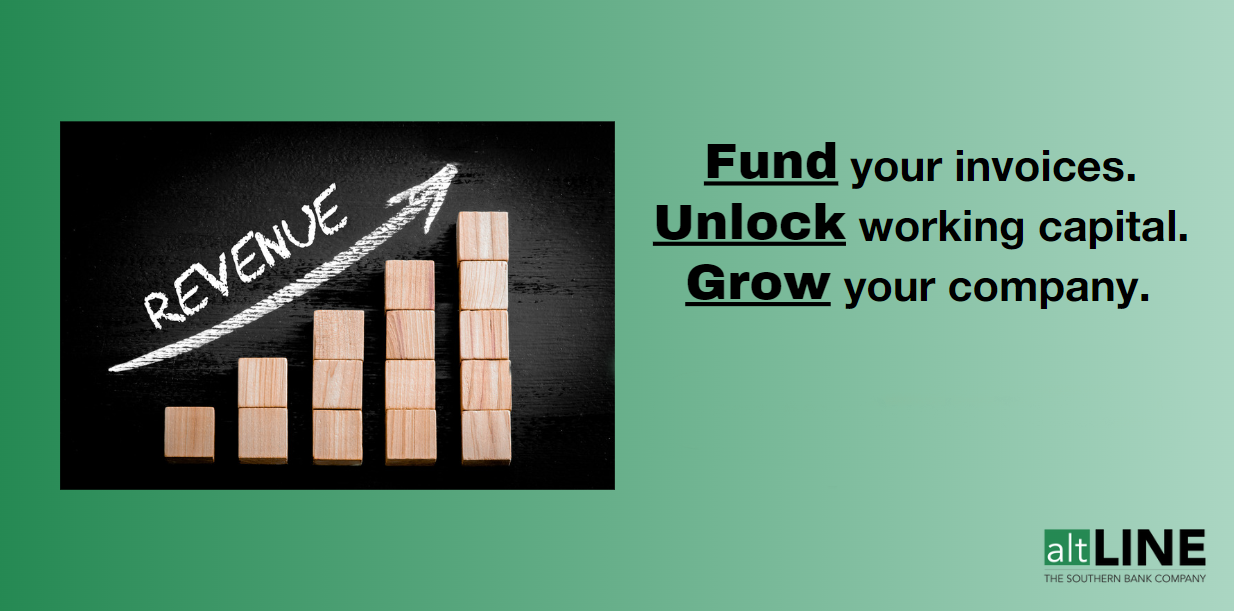Last Updated December 11, 2025
No matter how organized your billing system is, most businesses will encounter a disputed invoice at some point. One VersaPay report showed that 98% of businesses deal with invoice and payment disputes.
Knowing how to handle invoice disputes professionally is crucial, not only to maintain positive client relationships but also to protect your business’s financial health.
A client disputing an invoice might raise questions about charges, services delivered, or contract terms. While these situations can be stressful, it’s important to remember that invoice disputes are common and manageable with the right approach. In this guide, you’ll learn the most common causes of disputed invoices, how to resolve an invoice dispute, and how to design a proactive invoice dispute management process.
Key Takeaways
- Invoice disputes are common, but addressing them promptly prevents payment delays and protects client relationships.
- Clear communication and careful review of contracts and invoices make it easier to resolve disputes professionally.
- Correcting billing errors and providing detailed explanations helps maintain trust even when the client is mistaken.
- Including invoice dispute procedures, time limits, and clear payment terms in contracts reduces the risk of serious disagreements.
- Using verification checks and invoicing tools catches mistakes early and keeps accounts receivable flowing smoothly.
What Is an Invoice Dispute?
An invoice dispute happens when a client disagrees with:
- Charges
- The services or products provided
- Terms of the agreement
The customer might believe there’s a billing error, dispute the scope of work, or simply feel dissatisfied with the product or service they received. Regardless of the cause, disputed invoices require prompt attention to prevent them from escalating into legal issues.
Invoice disputes are a common issue for businesses of all sizes, not just large enterprises. It’s bound to happen to your business sooner or later, and how you handle it can affect client relationships, your reputation, and even cash flow.
Common Reasons for Invoice Disputes
Invoice disputes can happen for a variety of reasons, but most stem from common issues like:
- Errors in billing amounts or product or service descriptions
- Confusion over payment terms
- Dissatisfaction with the product or service
- Duplicate charges or missing credits
- Miscommunication over the project scope or change orders
- Timing issues, like receiving the invoice too early or too late
- Disagreements over taxes, fees, and additional charges
Some invoice disputes are the result of genuine errors on the part of the business, while others are the result of miscommunication or confusion. Proper client management and solid communication will help you stay ahead of most disputed invoices. However, errors can still cause customers to push back on incorrect charges.
Examples of Invoice Disputes
Here are a few common invoice dispute examples:
- A marketing agency sends a final bill, but the client claims the agency didn’t complete the campaign deliverables as promised.
- A construction company issues an invoice with a price higher than the original quote, leading the client to dispute the invoice due to unexpected additional fees.
- A freelancer charges for 50 hours of work, but the customer disputing the invoice believes only 35 hours were approved.
- A product supplier invoices for a full shipment, but the buyer disputes the charges because several items arrived damaged or missing.
- An IT services provider bills for monthly maintenance, but the client questions why the provider didn’t resolve downtime issues promptly.
If your business finds itself in any of these situations, don’t fret. Invoice disputes are common. While the goal is to minimize them, it’s not necessarily about learning how to prevent invoice disputes entirely—because often, situations are out of your control. Your goal should be learning how to resolve invoice disputes to the best out your ability.
How to Resolve an Invoice Dispute
Having the right procedure in place will help you keep a level head and manage the situation professionally. Here are some steps to take to resolve disputed invoices:
1. Communicate With the Client to Understand the Situation
The first step in handling invoice disputes is open communication. Per VersaPay, 78% of C-level executives said that invoice disputes could have been alleviated with better communication.
Reach out promptly to the client disputing the invoice and ask them to explain their concerns. Often, a quick conversation can clarify misunderstandings before they escalate into a formal invoice dispute process. Listen carefully and remain professional and calm throughout the discussion.
2. Investigate the Dispute
Once you understand the issue, review all related documents, including contracts, emails, and the original invoice. Proper accounting for disputed invoices involves verifying whether the billed amounts align with the agreed-upon terms.
3. If the Customer Is Mistaken, Find a Viable Solution
Sometimes, a customer disputing an invoice may be confused about the services provided or the agreed payment terms. Even if the customer disputing the invoice is in the wrong, work together to find a solution that preserves the relationship. According to VersaPay’s recent AR Pulse Check Survey, 84% of respondents said customer experience is an important element of their accounting process. This highlights the importance of remaining professional and friendly, even if they’re in the wrong. Doing so could save the partnership you’ve built with them.
Sending a polite, factual dispute invoice letter or providing a detailed explanation can settle the situation amicably.
4. Escalate Through Legal Action if Needed
If you can’t reach an agreement through direct communication, you may need to follow a formal invoice dispute procedure. This could involve legal steps, especially if the client refuses to cooperate. It’s essential to act within the time limit specified in your contracts or by local disputed invoice laws.
How to Take Legal Action for Disputed Invoices
So, what do you do when a client doesn’t pay, even after making a good-faith effort to work with them?
When communication and negotiation fail, legal action may be necessary to resolve a disputed invoice. If you’re considering this step, it’s important to understand your rights under disputed invoice law and the proper way to send a client to collections.
Document All Communication With Your Client
First, ensure that you followed your invoice dispute procedure and documented all communication with the client regarding the disputed invoice. Courts often require evidence that you made a good-faith effort to resolve the situation before filing a claim. Having copies of your dispute invoice letter, contracts, and invoices will strengthen your case.
Review Your Jurisdictions’ Invoice Dispute Time Limit
You’ll also want to review the invoice dispute time limit in your jurisdiction. Missing this window could mean you lose the right to collect payment, even if you’re in the right. Understanding how to dispute an invoice from a legal perspective—and how to resolve an invoice dispute through formal channels—often involves consulting an attorney or using a collections agency familiar with handling invoice disputes.
Get Professional Advice
While you might wonder, “Do I have to pay a disputed invoice if I’m on the receiving end of the disagreement?”, the legal system provides a process to determine who is responsible based on the facts. In this case, it’s best to get professional advice to help you navigate the complexities of invoice dispute management.
Take Legal Action If Required
You might need to find a collection agency if your customer refuses to pay an invoice. Use your best judgment to determine if the value warrants moving forward with a collection agency, or if its minimal enough to file under bad debt.
The Impact of Invoice Disputes on Small Businesses
Disputed invoices are just a part of doing business. If a client disputes an invoice, that doesn’t necessarily mean there’s a major problem. Sometimes, it’s simply a misunderstanding or a need for clarification. So, if you’re facing a disputed invoice, don’t panic.
With that said, you should take every disputed invoice seriously. That’s especially true in a small business where a single client invoice might make up the bulk of your monthly earnings. Failing to handle disputes promptly can lead to a lot of issues, including:
- Cash flow issues
- Disrupted operations
- Delayed growth
- Unnecessary financial strain
- Poor client experience
- Lost business
Proactively handling invoice disputes, from the moment a customer raises a concern to the formal resolution of the dispute, can make all the difference. Follow accounting best practices to maintain accurate and up-to-date financial records and protect your long-term financial stability.
How to Prevent Serious Invoice Disputes With Clients
You can’t prevent all invoice disputes, but taking a few proactive steps can significantly reduce the odds of serious disagreements.
Clearly Lay Out Payment Terms in the Contract
One of the best ways to avoid a client disputing an invoice is to define payment terms up front. Make sure your contract includes clear details about pricing, deadlines, and expectations so both parties are on the same page from the start. Don’t forget to include a clause regarding late fees, so clients don’t feel surprised by additional charges if they pay late.
Add Dispute Procedures to Terms and Conditions
Including a formal invoice dispute process in your terms and conditions ensures that if a disagreement arises, there’s already a roadmap for handling invoice disputes. This makes the situation more structured and less personal.
Include an Invoice Dispute Time Limit in the Contract
Setting an invoice dispute time limit protects your business. It provides customers with a specific window to raise any issues, and if they miss it, you can proceed with collections or other actions as permitted under disputed invoice law.
Ensure Each Invoice You Send Is Accurate
Prevent a customer dispute by double-checking invoices before sending them. Even small errors can trigger disputed invoices and unnecessarily delay payment. Include essential information that will help with tracking each invoice, including the customer’s contact information, charges, dates, and invoice number.
Understanding how to send an invoice effectively will reduce miscommunications with your clients. For example, tell clients to expect an email that will allow them to pay their bill. Setting this expectation will help you prevent miscommunications that can lead to delayed payments and disputes.
Practice Invoice Verification
Establish internal checks to verify invoices before sending them to customers. The invoice reconciliation process involves verifying that you actually delivered the goods or services listed in the invoice and that their descriptions and amounts are accurate. This extra step supports accounting for disputed invoices properly and reduces the likelihood of a disputed invoice.
Build a Good Relationship With Your Customers
Strong communication and trust go a long way. If an invoice dispute comes up, having a positive relationship can make it easier to resolve issues without harming the partnership. Of course, this requires building a positive relationship long before the invoice dispute. From day one, you should focus on building relationships with customers that can weather hiccups like invoice disputes.
Invest in Invoicing Software
Using invoicing software can automate calculations, track payment timelines, and ensure compliance with your invoice dispute procedures. Most billing platforms include features for invoice automation, which reduces manual inputs and errors. All of these features can help prevent mistakes that often lead to invoice disputes.
Use Invoice Factoring
Invoice disputes can take anywhere from days to weeks or even months to resolve. In the meantime, you might find yourself in financial limbo. If you need immediate cash flow, invoice factoring can offer financial protection. Selling unpaid invoices to trusted providers, such as altLINE, helps you avoid the strain that unresolved disputed invoices can place on your business.
In-Summary: Client Invoice Disputes
Client invoice disputes may feel stressful in the moment, but they are a normal part of running a small business. Fortunately, they don’t have to derail your company. Knowing how to handle invoice disputes can make a big difference in protecting your cash flow, reputation, and client relationships.
Proactive communication and preparation are key. Clear contracts, accurate invoicing, and quick communication can prevent many invoice disputes before they escalate into bigger problems. If a customer dispute does come up, remain calm, investigate it thoroughly, and follow a fair invoice dispute resolution process. No business wants to dispute invoices, but when it happens, your ability to manage the situation well can strengthen trust and demonstrate professionalism.
Michael McCareins is the Content Marketing Associate at altLINE, where he is dedicated to creating and managing optimal content for readers. Following a brief career in media relations, Michael has discovered a passion for content marketing through developing unique, informative content to help audiences better understand ideas and topics such as invoice factoring and A/R financing.











